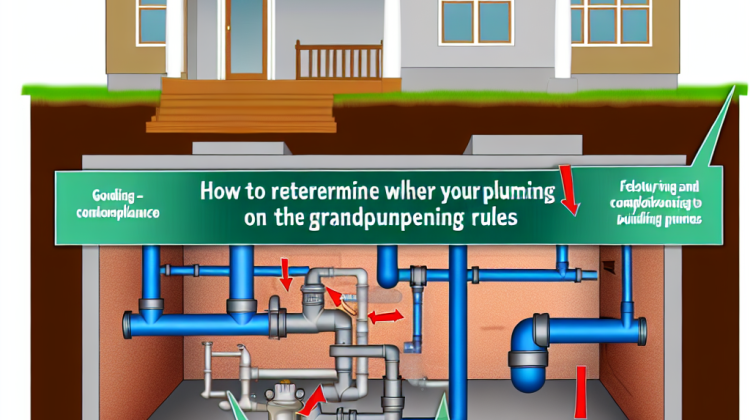
Did you know that some plumbing systems in Nashville can be older than many of the buildings they’re in? That’s right! A lot of homes here have plumbing that’s been around for decades, sometimes even more than a century. This old plumbing can sometimes be “grandfathered in,” which means it’s allowed to keep operating even if new rules or codes have come into play.
Nashville has a fascinating history with its plumbing. Back in the day, when towns were just beginning to grow, the plumbing systems were built to be simple and effective. But as time went by, rules about plumbing changed. New materials and techniques came along to make things safer and more reliable. However, when a house was built using older methods and materials, the city sometimes decided to let it keep using that plumbing instead of forcing a complete update. That’s where the term “grandfathered” comes from. Today, this older plumbing may not line up with modern codes, but it’s still working just fine in many homes.
If you’ve ever wondered whether your plumbing system is grandfathered, you’re not alone. A lot of folks are curious about it, especially when they think there might be a problem. You might even hear your neighbor mentioning that their plumbing was “grandfathered” when discussing repairs. One way to find out is to check the age of your home. If it was built before the ‘70s, there’s a chance that the plumbing might fit into this category. Now, here’s where it gets interesting: homes built before certain code changes might be allowed to keep older materials like lead or galvanized piping, but those aren’t always safe!
Also, consider checking with the local building department or a plumber who knows the ins and outs of Nashville’s codes. They can look at your plumbing and tell you if it’s still okay under the law. It’s like asking for a second opinion on your favorite book—sometimes, you just need to know! Statistics show that homes with grandfathered plumbing often have higher maintenance costs, so it’s a good idea to understand what you’re dealing with.
You might even find out that your home’s plumbing is a patchwork of old and new pipes. So, if you notice a leak or weird noises—yikes!—in the pipes, it might be a sign that it needs some attention. Don’t be afraid to dig a little deeper. Sometimes, learning about your plumbing can be like finding hidden treasure in your home, revealing secrets from days gone by.
How to Know If Your Plumbing Is Grandfathered in Nashville
If you live in Nashville and wonder whether your plumbing is “grandfathered in,” you’re not alone! Lots of folks are curious about this. The term “grandfathered in” means that your existing plumbing system was built before new rules and codes were put in place. So, let’s dive into how you can find out if your plumbing fits this description.
Check Local Codes
Nashville has specific plumbing codes that change from time to time. To see if yours is grandfathered, you’ll want to check the local building codes. You can usually find this information on the city’s official website or at your local city hall. They keep records of all the codes and changes, so they can help you out!
Look at Your Home’s Age
Another easy way to figure things out is to check the age of your home. If your house was built before a certain date when new plumbing rules started, there’s a good chance your plumbing is grandfathered. For instance, if your home is over 30 years old, it might still have the old plumbing systems that are no longer used today!
Inspect Your Plumbing System
Now, put on your detective hat and take a look at your plumbing. Old pipes might be made of materials like lead or polybutylene, which aren’t allowed in new homes. If you spot these kinds of materials, you could have grandfathered plumbing. Just remember to be careful when inspecting, and if you’re unsure, calling a plumbing professional is a smart move!
Talk to a Plumber
When in doubt, just talk to a plumber! They know their stuff and can tell you if your plumbing system is up to code or if it’s got that grandfathered status. They can also keep you informed on what’s changed in the plumbing game over the years.
Check with Neighbors
Your neighbors might have the same question on their minds! Ask them about their plumbing and any changes they made. Sometimes, folks in older neighborhoods have similar systems, and you might learn something new about your own plumbing in the process!
Fun fact: did you know that about 40% of homes built in Nashville before 1950 might have plumbing systems that are grandfathered in? That’s a big chunk of the city!
# How to Know if Your Plumbing is Grandfathered in Nashville FAQ
##
1. What does “grandfathered” mean in plumbing?
“Grandfathered” means that something, like old plumbing, is allowed to stay even if new laws or rules say it shouldn’t. So, if your plumbing was installed before new codes came out, it might be considered grandfathered in.
##
2. How can I tell if my plumbing is grandfathered?
You can check the age of your plumbing by looking for permits or records. If your system was installed before Nashville updated plumbing codes, it might be grandfathered.
##
3. Why is it important to know if my plumbing is grandfathered?
Knowing if your plumbing is grandfathered helps you understand if you need to make any upgrades. It can also affect your home insurance and future renovations.
##
4. How do I find plumbing codes in Nashville?
You can find plumbing codes by asking your local city office or checking their website. They usually have a section for building and plumbing codes.
##
5. Can I keep my old plumbing even if it’s not up to current codes?
Yes, if it’s grandfathered, you can generally keep your old plumbing. But, if you do major repairs or renovations, you might need to follow new codes.
##
6. What if I don’t know when my plumbing was installed?
No worries! You can check your house’s inspection report or ask a plumber. They can often find out or help you figure it out.
##
7. Do I need a special permit for grandfathered plumbing?
Usually, there’s no special permit just for having grandfathered plumbing. But, if you’re making changes, you’ll want to check with your local office first!
##
8. How often should I have my plumbing checked?
It’s a good idea to check your plumbing at least once a year. This helps catch any problems early, especially if it’s older plumbing.
##
9. What signs show I might need to update my plumbing?
Look for leaks, low water pressure, or strange noises from pipes. Also, rust and bad smells can mean it’s time to think about updates!
##
10. Who can help me with my plumbing questions?
A licensed plumber is your best bet! They know all about plumbing codes and can help you understand if your system is grandfathered.
How to Know if Your Plumbing is Grandfathered in Nashville
To figure out if your plumbing’s grandfathered in Nashville, first, check the age of your house. If it’s older—like built before the 1990s—there’s a good chance that it’s got some older plumbing systems. Next up, look at the materials used. If your pipes are made of old stuff like lead or orangeburg, that’s an indicator it’s likely not up to today’s standards but might still be allowed to stay. You can also peek at the city records or talk to your friendly neighbor who’s been around for a while; they might know the scoop about local plumbing codes.
Don’t forget, reaching out to a local plumber is a smart move too. They’ve got the know-how to help you understand if your plumbing’s really in the clear or if you’ll need to think about some upgrades. It might feel a little tricky at first, but with a bit of digging and some help from the right people, you’ll find out if your plumbing is in the grandfathered club or if it’s time to make some changes. Remember, old doesn’t always mean bad, but it’s best to be safe and stay in the loop about what’s happening with your pipes!
